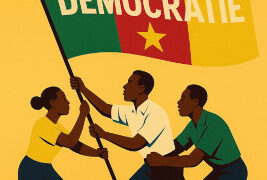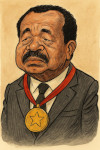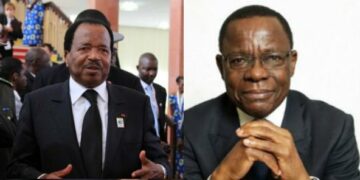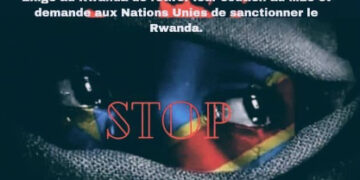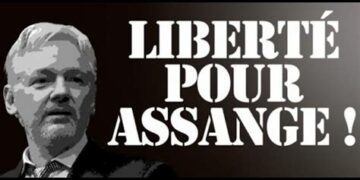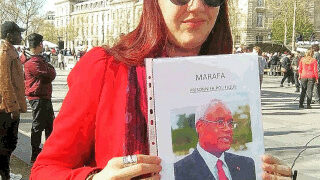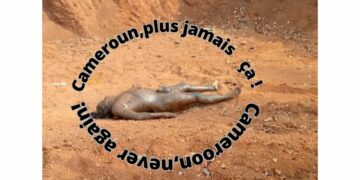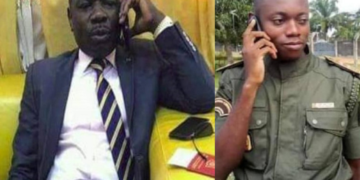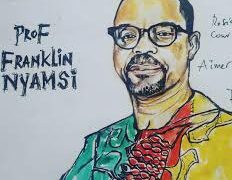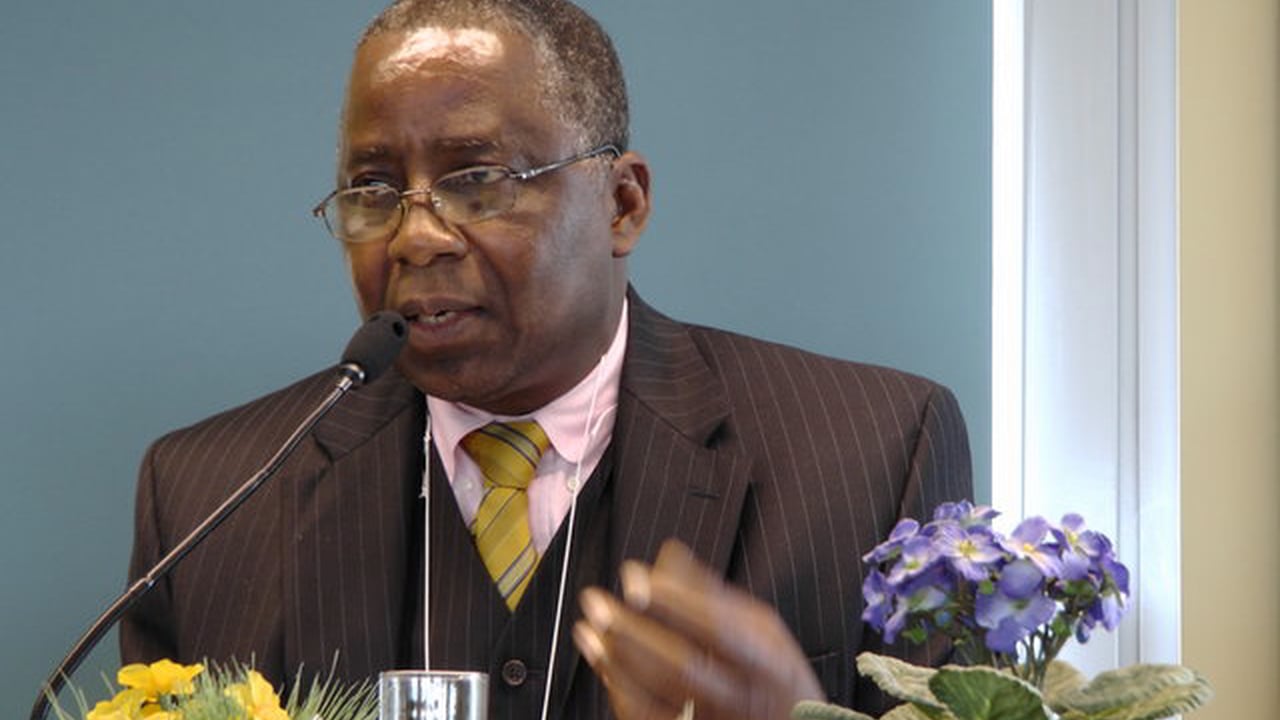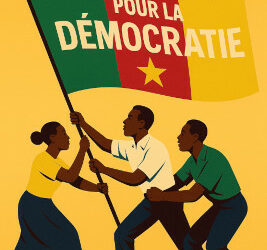Dear readers,
I have cut and pasted for your attention paragraphs from some of the judgments that are relevant to the trial of Barrister Felix Agbor Balla Nkongho, Dr Neba Fontem and Mancho today. The excerpts are relevant to the current persecution of Hon Justice Paul Ayah and a thousands of Southern Cameroonians who have been abducted and deported to military and para-military detention centres and the Kondengui maximum security prison. I have not provided a commentary having participated in some of the cases as counsel.
Please read on:
ON RESTRICTIONS ON FUNDAMENTAL FREEDOMS
Albert Womah Mukong v. Cameroon Communication No.458/1991 21 July 1994
9.7 Under article 19, everyone shall have the right to freedom of expression. Any restriction of the freedom of expression pursuant to paragraph 3 of article 19 must cumulatively meet the following conditions: it must be provided for by law, it must address one of the aims enumerated in paragraph 3(a) and (b) of article 19, and must be necessary to achieve the legitimate purpose. The State party has indirectly justified its actions on grounds of national security and/or public order, by arguing that the author’s right to freedom of expression was exercised without regard to the country’s political context and continued struggle for unity.
While the State party has indicated that the restrictions on the author’s freedom of expression were provided for by law, it must still be determined whether the measures taken against the author were necessary for the safeguard of national security and/or public order. The Committee considers that it was not necessary to safeguard an alleged vulnerable state of national unity by subjecting the author to arrest, continued detention and treatment in violation of article 7. It further considers that the legitimate objective of safeguarding and indeed strengthening national unity under difficult political circumstances cannot be achieved by attempting to muzzle advocacy of multi-party democracy, democratic tenets and human rights; in this regard, the question of deciding which measures might meet the “necessity” test in such situations does not arise. In the circumstances of the author’s case, the Committee concludes that there has been a violation of article 19 of the Covenant.
ON THE UNFAIRNESS OF THE TRIAL DUE TO STATE MEDIA CAMPAIGN
ENGO v Cameroon Communication No. 1397/2005 22 July 2009
3.6 The author has also been the target of other public accusations in the press. On 29 August 2003, the newspaper La Nouvelle Expression published an article accusing the author of arms dealing. According to the author, the investigation into this charge is apparently still under way, although the State party indicates that no judicial proceedings are under way against the author for arms dealing. Moreover, the State media are continuing their propaganda campaign against the author, despite numerous requests to the prosecutor, the Minister of Justice and the managing director of Cameroon Radio Television to put a stop to it. The author, who has long remained faithful to the Government of Cameroon, attributes his imprisonment to the fact that he was held in increasing esteem by the population. He states that, in 1994, he had founded a non-governmental organization to help the poorest people in Cameroon and that, in 1999, he had announced that his foundation would shortly be opening offices throughout the country. During the same period, Transparency International criticized the Government for its failure to combat corruption. The author considers that he is being used as a scapegoat in the Government’s campaign against corruption.
7.6 With regard to the allegations of violations of article 14, notably article 14, paragraph 2, the Committee notes first that the author claims that his right to the presumption of innocence has been violated. To support his claim, he cites the information about him published in the State media. The author wrote letters to the competent authorities requesting them to put a stop to the publication of such information; however, these letters met with no response. The State party does not contest these facts. The Committee recalls that the accused’s right to be presumed innocent until proved guilty by a competent court is guaranteed by the Covenant. The fact that, in the context of this case, the State media repeatedly portrayed the author as guilty before trial and published articles to that effect, is in itself a violation of article 14, paragraph 2, of the Covenant.
ON ABDUCTION AND ARBITRARY DETENTION
Fongum Gorji-Dinka v Cameroon Communication 1134/2002,
5.1. The first issue before the Committee is whether the author’s detention from 31 May 1985 to 3 February 1986 was arbitrary. In accordance with the Committee’s constant jurisprudence,
[10]
‘
arbitrariness’ is not to be equated with ‘against the law’, but must be interpreted more broadly to include elements of inappropriateness, injustice, lack of predictability and due process of law.
This means that remand in custody must not only be lawful but reasonable and necessary in allthe circumstances, for example to prevent flight, interference with evidence or the recurrence of crime.
[11]
The state party has not invoked any such elements in the instant case. The Committee further recalls the author’s uncontested claim that it was only after his arrest on 31 May 1985 and his re-arrest on 9 June 1985 that President Biya filed criminal charges against him, allegedly without any legal basis and with the intention to influence the outcome of the trial before the Military Tribunal. Against this background, the Committee finds that the author’s detention between 31 May 1985 and 3 February 1986 was neither reasonable nor necessary in the circumstances of the case, and thus in violation of article 9(1) of the Covenant.
ON ADBUCTION, DEPORTATION AND PURPORTED TRIAL OF A SOUTHERN CAMEROONIAN CIVILIAN IN A MILITARY COURT AND AWAY FROM THE ALLEGED PLACE OF COMMISSION OF THE ALLEGED OFFENCES
Communication No. 1813/2008 Ebenezar Akwanga v Cameroon
2.3 On 29 March 1997, the author was taken to the National Headquarters of the
Gendarmerie, Secretariat of the State for Defence in Yaoundé. He was identified as
“élément très dangereux” and put in a cell with hardened criminals, who had been
instructed by the gendarmerie to make him “uncomfortable”. For 25 days he was forced to
sleep near the toilet on a urine-soaked bare floor and he was not allowed to bathe. He was
only able to crawl, as standing with his chained legs was painful. After the third day, he
was interrogated and again consistently accused of being involved in an armed and violent
secessionist movement.
2.4 On 2 June 1997, the
7.5 The Committee notes the State party’s argument that the author’s trial was conducted according to the legislation in force and that he benefited from an official interpreter during the hearings. It also notes the author’s argument that the court was not independent, that he had little opportunity to communicate with his lawyer, who had no access to the indictment and was therefore not able to prepare his defence adequately, and that the written evidence on which the indictment was based was not produced in court. The 24 General comment No. 21 [44] on article 10, paras. 3 and 5;
communication No. 1134/2002, Fongum Gorji-Dinka v. Cameroon, Views adopted on 17 March 2005, para. 5.2.
25 See for example: communication No. 908/2000, Xavier Evans v. Trinidad and Tobago, Views
adopted on 21 March 2003; and communication No. 1173/2003, Abdelhamid Benhadj v. Algeria,
Views adopted on 20 July 2007.
26 General comment No. 8, article 9, sixteenth session, 1982.
CCPR/C/101/D/1813/2008
GE.11-43122 13
Committee recalls its general comment No. 32,27 in which it considers that the State party must demonstrate, with regard to the specific class of individuals at issue, that the regular civilian courts are unable to undertake the trials, that other alternative forms of special or high-security civilian courts are inadequate for the task and that recourse to military courts is unavoidable. The State party must further demonstrate how military courts ensure the full protection of the rights of the accused pursuant to article 14. In the present case, the State party has not shown why recourse to a military court was required. In commenting on the gravity of the charges against the author, it has not indicated why the ordinary civilian courts or other alternative forms of civilian court were inadequate for the task of trying him.
Nor does the mere invocation of conduct of the military trial in accordance with domestic legal provisions constitute an argument under the Covenant in support of recourse to such courts. The State party’s failure to demonstrate the need to rely on a military court in this case means that the Committee need not examine whether the military court, as a matter of fact, afforded the full guarantees of article 14.28 The Committee concludes that the trial and sentencing of the author by a military court discloses a violation of article 14 of the Covenant.
ON SUNDRY VIOLATIONS AGAINST THE SOUTHERN CAMEROONIANS, TRIAL OF CIVILIAN SOUTHERN CAMEROONIANS IN A MILITARY COURT AND THE LACK OF AN INDEPENDENT JUDICIARY IN CAMEROON
Communication No. 266/2003 27 May 2009 Gwang Gumne SCAPO, SCNC and SCYL V Cameroon
SUMMARY OF FACTS
1. The Complainants are 14 individuals who brought the communication on their behalf and on behalf of the people of Southern Cameroon [FN1] against the Republic of Cameroon, a State Party to the African Charter on Human and Peoples’ Rights.
2. The Complaints allege violations which can be traced to the period shortly after “La Republique du Cameroun” became independent on 1st January 1960. The Complainants state that Southern Cameroon was a United Nations Trust Territory administered by the British, separately from the Francophone part of the Republic of Cameroon, itself a French administered United Nations Trust Territory. Both became UN Trust Territories at the end of the 2nd World War, on 13 December 1946 under the UN Trusteeship system.
3. The Complainants allege that during the 1961 UN plebiscite, Southern Cameroonians were offered “two alternatives”, namely: a choice to join Nigeria or Cameroon. They voted for the later. Subsequently, Southern Cameroon and La Republique du Cameroun, negotiated and adopted the September 1961 federal constitution, at Foumban, leading to the formation of the Federal Republic of Cameroon on 1st October 1961. The Complainants allege further that the UN plebiscite ignored a third alternative, namely the right to independence and statehood for Southern Cameroon.
4. The Complainants allege that the overwhelming majority of Southern Cameroonians preferred independence to the two alternatives offered during the UN plebiscite. They favoured a prolonged period of trusteeship to allow for further evaluation of a third alternative. They allege further that the September 1961 federal constitution did not receive the endorsement of the Southern Cameroon House of Assembly.
5. The Complainants allege that the violations suffered by the people of Southern Cameroon emanate from the UN plebiscite of 11 February 1961
6. They allege that on 1st October 1961 La Republique du Cameroun, with the tacit approval of the British government, drafted gendarmes, police and soldiers from the Francophone side into Southern Cameroon, which amounted to “forceful annexation” of Southern Cameroon. They allege that, “[a]t no time was sovereignty over Southern Cameroon transferred to a new Federal United Cameroons or any other entity.” They argue that the failure to exercise the third alternative, impacted negatively on the right of the people of Southern Cameroon to self determination.
7. The Complainants allege further that “notwithstanding the forceful annexation,” the people of Southern Cameroon remained a separate and distinct people. Their official working language is English, whereas the people in La Republique du Cameroun are Francophones. The legal, educational and cultural traditions of the two parts remained different, as was the character of local administration. In spite of the foregoing, they allege further that the Respondent State manipulate demographic data to deny the people of Southern Cameroon equal rights to representation in government. They allege that the people of Southern Cameroon have been denied powerful positions within the national/federal government. They claim that the September 1961 federal constitution was designed to respect those differences.
8. The Complainants allege further that from the outset of unification in 1961, and the declaration of a unitary state in 1972, Southern Cameroonians remain marginalised. They allege that Southern Cameroon was allocated 20% instead of 22% of the seats in the Federal/National Assembly, as per the population ratio, thus denying them equal representation. They allege that in 1961 West Cameroon was allocated 20 representatives in the Federal Assembly instead of 26. Later when representation to the Assembly was expanded to 180 representatives, West Cameroon was allocated 35 representatives, instead of 40 representatives. The Complainants allege further that the Francophones occupy local administrative positions in Southern Cameroon, and abuse their positions to amass land, and access economic resources, while the Southern Cameroonians play the minutest role at the local or national level.
9. It is further alleged that several towns in Southern Cameroon were denied basic infrastructure, hence denying them the right to development. It is alleged that the Respondent State, relocated or located various economic enterprises and projects, such as the Chad – Cameroon Oil Pipeline, the deep seaport, and the oil refinery to towns and cities in Francophone Cameroon, notwithstanding their lack of economic viability, thereby denying employment opportunities and secondary economic benefits to the people of Southern Cameroon.
10. The Complainants allege further that the Francophones have monopolistic control of the Ministry of National Education. That the Respondent State has under funded primary education in Southern Cameroon, it failed to build new schools, understaffed primary schools, and it is closing all teacher training colleges. They allege further that the Respondent State “Cameroonised” the GCE from the University of London, leading to mass protests which forced government to create an independent GCE Board. That, upon unification, diplomas awarded by the City & Guild, a technical education institution based in England, were replaced by the Certificat d’Aptitude Professionale (CAP) and the BAC Technique. These measure have resulted in persistent high levels of illiteracy in many areas in Southern Cameroon.
11. The Complainants allege that political unification and the application of the civil law system resulted in the discrimination against Anglophones in the legal and judicial system. Southern Cameroonian companies and businesses were forced to operate under the civil law system. The Companies Ordinance of the Federation of Nigeria, which was until then applicable in Southern Cameroon was abolished. Many Southern Cameroonian businesses went bankrupt, following the refusal by Francophone banks to lend them finances, in some cases, unless their articles of association were drafted in French.
12. They allege that Anglophones facing criminal charges were transferred to the Francophone zone for trial, under the Napoleonic Code, thereby adversely affecting their civil rights. The Complainants state that the common law presumption of innocence upon arrest is not recognised under the civil law tradition, since guilt is presumed upon arrest and detention. The courts conduct trial in the French language without interpreters. Furthermore, they allege that Southern Cameroon court decisions are ignored by the Respondent State.
13. The Complainants allege that the entry by the Respondent State as a State Party to the Organisation pour l’Harmonisation des Droits d’Affaires en Afrique (OHADA), a treaty for the harmonisation of business legislation amongst Francophone countries in Africa, constituted discrimination against the people of Southern Cameroon on the basis of language. OHADA stipulates that the language of interpretation of the treaty shall be French. The Complainants argue that the Constitution recognises English and French as the official languages of Cameroon. They argue therefore that by signing the OHADA treaty, Cameroon violated the language rights of the English speaking people of Cameroon. They allege that any company not registered under the OHADA law cannot open a bank account in Cameroon.
14. The Complainants allege further that,on 3rd April 1993, representatives of the people of Anglophone Cameroon adopted the Buea Declaration, which declared the preparedness of the Anglophones “… to participate in the forthcoming Constitutional talks with their Francophone brothers….” The Declaration stated that;
(i) “…the imposition of the Unitary State on Anglophone Cameroon in 1972 was unconstitutional, illegal and a breach of faith,”
(ii) “That the only redress adequate to right the wrongs done to Anglophone Cameroon and its people since the imposition of the Unitary state is a return to the original form of government of the Reunified Cameroon,
(iii) That to this end, all Cameroonians of Anglophone heritage are committed to working for the restoration of a federal Constitution and a federal form of government, which takes cognizance of the bicultural nature of Cameroon and under which citizens shall be protected against such violations as have been enumerated.
(iv) That the survival of Cameroon in peace and harmony depends upon the attainment of this objective towards which all patriotic Cameroonians, Francophones as well as Anglophones, should relentlessly work.”
15. Subsequent to the 1993 Buea Declaration, it is alleged that between 29th April and 1sMay 1994, the Second Anglophone Conference convened in Bamenda adopted the Bamenda Proclamation, which stated, inter alia, that:
“….one year since the Anglophone constitutional proposals were officially submitted, the government had not reacted to them;
that all efforts to generate the interest and understanding of the Francophone officials and Francophone public generally in the Anglophone constitutional proposals had been greeted with responses ranging from indifference through apathy to hostility………..”
IN THE LIGHT OF THE FOREGOING the Anglophone people of Cameroon………………;
“6. Should the Government either persist in its refusal to engage in meaningful constitutional talks or fail to engage in such talks within a reasonable time, the Anglophone Council shall inform the Anglophone people by all suitable means. It shall, thereupon, proclaim the revival of the independence and sovereignty of the Anglophone territory of Southern Cameroon and take all measures necessary to secure, defend and preserve the independence, sovereignty and integrity of the said territory.” (emphasis added)
16. The Complainants allege that the failure by the Respondent State to address the concerns of the Southern Cameroon people for a new constitution, coupled with the adoption of the 1995 December Constitution by the National Assembly of La Republique du Cameroun without public debate, meant that the door was being finally closed on any future constitutional links between the Southern Cameroon and La Republique du Cameroun. Henceforth, the Complainants decided to conduct a signature referendum, in view of “the hostile atmosphere created by the occupying power…….which would not want to allow any form of consultation which might reveal the true suppressed aspirations of the people of Southern Cameroons.”
17. The Complainants aver that between 1st and 30th September 1995, the Southern Cameroons National Council (SCNC) conducted a signature referendum which revealed that 99% of Southern Cameroonians favour full independence by peaceful separation from the Respondent State.
18. Besides their claim for statehood, the Complainants allege further that human rights of various individuals have been systematically violated by the Respondent State. The Complainants compiled eye witness accounts and field investigations relating to arbitrary arrests, detentions, torture, punishment, maiming and killings of persons who have advocated for the self determination of Southern Cameroon
119. Further to the foregoing, Communication 147/95 and 149/96, Sir Dawda Jawara/The Gambia, the Commission stated that,
” [t]he Commission in its decision on communication 101/93 laid down a general principle with respect to freedom of association, that ‘competent authorities should not enact provisions which limit the exercise of this freedom. The competent authorities should not override constitutional provisions or undermine fundamental rights guaranteed by constitution or international human rights standards.’ This therefore applies not only to right to freedom of expression of association, but also to all other rights and freedoms … for a State to avail itself of this plea, it must show that such a law is consistent with its obligations under the Charter.”
ALLEGED VIOLATION OF ARTICLE 7(1)
121. The Complainants alleged that the Respondent State violated Article 7(1), on the right to fair trial. They allege that individuals were transferred from Southern Cameroon to Francophone Cameroon for trial by military tribunals and that other victims were tried in civil law courts, without interpreters.
122. The Respondent State admits that between 1997 and 2001, some individuals were transferred from the North West Cameroon, and were tried for various criminal offences by the Yaoundé Military Tribunal, These offences include unlawful incitement, disturbances of public peace, destruction of public property, assassination of gendarmes and civilian individuals, illegal possession of weapons and ammunition, and the illegal declaration of the independence of Anglophone Cameroon on 30 December 1999.
123. The Respondent States asserts the following;
” [a]ware that in the past the actions of SCNC militants have always ended up in assassinations, kidnapping of persons, destruction and setting ablaze of public buildings, public authorities could not remain indifferent in front of this manifest determination to cause disorder and disturbances. About three days before 1 October 2001, gendarmes were dispatched nearly everywhere in the areas and localities targeted by the SCNC.”
124. The Respondent State submitted that some of the victims were released, albeit after prolonged periods of detention, for lack of evidence. Others were released on bail, and fled the country. It argues that the prolonged detention was due to administrative bottlenecks, which are a constant concern of the government. The Respondent State did not indicate the measures it had taken to address the chronic administrative problems causing prolonged detentions.
125. The Respondent State denied that it ignored or failed to implement Court decisions in Anglophone Cameroon. It cited a number court decision it had complied with, including those which overturned executive decisions. The Complainant did not give any specific case or decision which was not complied with by the Respondent State.
126. The Commission wishes to state that the rights outlined in Article 7 constitute fundamental tenets of any democratic state. It is through respect for these rights that other rights guaranteed by the Charter may also be realised. The Commission has adopted the Principles and Guidelines on the Right to Fair Trial and Legal Assistance in Africa, to assist State Parties to better guarantee the rights enshrined in Article 7.
127. The Respondent state did not explain why it transferred individuals from North West Cameroon for trial by the Yaoundé and Bafoussam Military Tribunals, nor the reason why the victims were tried by tribunals outside the jurisdictions where the offences were allegedly committed. The Commission has stated previously that trial by military courts does not per se constitute a violation of the right to be tried by a competent organ. What poses problem is the fact that, very often, the military tribunals are an extension of the executive, rather than the judiciary. Military tribunals are not intended to try civilians. They are established to try military personnel under laws and regulations which govern the military. In communication 218/98 Civil Liberties Organisation, Legal Defence Centre, Legal Defence and Assistance Project v. Nigeria the Commission stated the following:
“The military tribunals are not negated by the mere fact of being presided over by military officers. The critical factor is whether the process is fair, just and impartial”
128. The accused persons were not military personnel. The offences alleged to have been committed were quite capable of being tried by normal courts, within the jurisdictional areas the offences were allegedly committed. The Commission finds that trying civilians by the Yaoundé and the Bafoussam Military Tribunals was a violation of Article 7(1) (b) of the Charter.
129. The Complaints submit that the accused were tried in a language they did not understand, without the help of interpreters. The Respondent State did not contradict that allegation. The Commission states that it is a prerequisite of the right to a fair trial, for a person to be tried in a language he understands, otherwise the right to defence is clearly hampered. A person put in such a situation cannot adequately prepare his defence, since he would not understand what he is being accused of, nor would he apprehend the legal arguments mounted against him.[FN15] The aforementioned Principles and Guidelines on the Rights to a Fair Trial and Legal Assistance in Africa, states that one of the essential elements of a fair hearing is:
“…an entitlement to the assistance of an interpreter if he or she cannot understand or speak the language used in or by the judicial body.”
130. The Commission recognizes that the Respondent State is a bilingual country. Its institutions including the judiciary can use either French or English. However since not all the citizens are fluent in both languages, it is the State’s duty to make sure that, when a trial is conducted in a language that the accused does not speak, he/she is provided with the assistance of an interpreter. Failing to do that amounts to a violation of the right to a fair trial.
131. The Commission therefore concludes that the Respondent State violated Article 7(1)(b) (c) and (d) of the Charter.
ALLEGED VIOLATION OF ARTICLE 26
209. The Complainants alleged violation of Article 26. They submitted that the judiciary in the Respondent State is not independent. They allege that the Executive branch influences the judiciary through the appointments, promotions, or transfer policy. It is also alleged that the President of the Republic convenes and presides over the Higher Judicial Council.
210. The Respondent State avers that judicial independence is guaranteed by the Constitution. It states that Article 37 of the 1972 Constitution requires every institution and person, including the President to respect it. The State argues further that the Higher Judicial Council which is the appointing and disciplinary authority for magistrates does not necessarily require magistrates to pledge allegiance to the President. It concedes that the President of the Republic chairs the Higher Judicial Council, the Minister for Justice, is the Vice Chairperson, three members of Parliament, three members of the bench, and an independent personality.
211. The Commission states that the doctrine of separation of powers requires the three pillars of the state to exercise powers independently. The executive branch must be seen to be separate from the judiciary, and parliament. Likewise in order to guarantee its independence, the judiciary, must be seen to be independent from the executive and parliament. The admission by the Respondent State that the President of the Republic, and the Minister responsible for Justice are the Chairperson and Vice Chairperson of the Higher Judicial Council respectively is manifest proof that the judiciary is not independent.
212. The composition of the Higher Judicial Council by other members is not likely to provide the necessary “checks and balance” against the Chairperson, who happens to be the President of the Republic. The allegations by the Complainants in this regard are therefore substantiated. The Commission does not hesitate to find the Respondent State in violation of Article 26
By Charles Taku
Lead Defense Counsel at UNICTR ARUSHA TANZANIA and SCSL
United States

